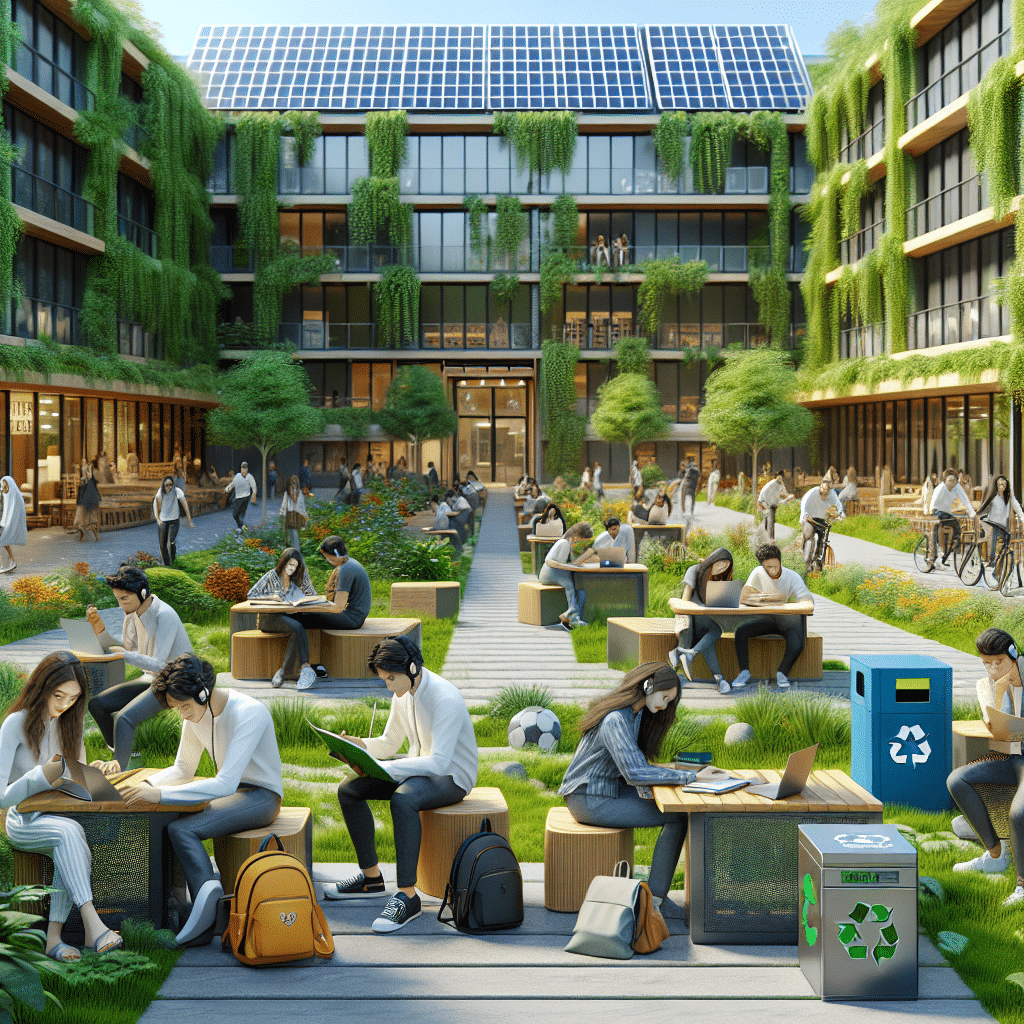Tips for Sustainable Living as a Student in Turkiye
1. Energy Conservation
Energy consumption is a significant contributor to carbon emissions. Students can adopt several strategies to conserve energy in their homes and daily activities:
- Use Energy-Efficient Appliances: Opt for energy-efficient devices and light bulbs to reduce electricity consumption.
- Maximize Natural Light: Take advantage of daylight to minimize artificial lighting. Open curtains and blinds during the day and switch off lights when leaving a room.
- Improve Insulation: Reduce heating or cooling energy by ensuring windows and doors are well-sealed. Utilizing rugs can help retain warmth during colder months.
- Choose Sustainable Accommodation: Many universities and student housing facilities in Turkiye are committed to energy-saving measures. Consider living in accommodations that promote sustainability.
2. Waste Reduction
Waste management is crucial in maintaining a clean and healthy environment. Here are some strategies students can implement:
- Participate in Recycling Initiatives: Engage with the “Zero Waste” project in Turkiye, which encourages separating recyclable materials and is widely observed in schools and public areas.
- Minimize Single-Use Plastics: Use reusable bags, cups, and containers to lessen plastic waste. This shift can make a significant difference in reducing landfill contributions.
- Compost Organic Waste: If permitted in your residence, composting organic waste can help divert materials from the landfill and create nutrient-rich soil.
3. Sustainable Transportation
Transportation contributes significantly to carbon emissions. Students can choose environmentally friendly travel options:
- Public Transport: Utilize the well-developed public transportation systems, including buses, trams, and metros, which are both eco-friendly and affordable.
- Cycling and Walking: These modes of transport not only reduce your carbon footprint but also promote physical health and well-being.
- Intercity Travel: When planning trips, prefer buses and trains over domestic flights whenever feasible, as they tend to have a lower environmental impact.
4. Eco-Friendly Purchasing Habits
Consumer habits play an important role in sustainability. Consider these tips while shopping:
- Buy Second-Hand: Thrift stores offer an excellent opportunity to find clothing and furniture, which helps reduce waste and saves money.
- Support Local Produce: Purchase goods from local farmers’ markets or neighborhood bazaars to reduce transportation emissions and support the local economy.
- Invest in Quality: Choose long-lasting items over disposable ones to minimize waste.
5. Water Conservation
Water scarcity is a growing concern in many regions of Turkiye. Here are effective water conservation methods:
- Practice Shorter Showers: Reducing shower time can significantly cut down water use.
- Mind Water Use: Turn off the tap while brushing teeth or washing dishes. Be conscious of water use to assist in alleviating regional water scarcity.
- Check for Leaks: Regularly inspect your accommodations for leaks and report them to your landlord to avoid water wastage.
6. Food Sustainability
Food choices can also impact sustainability. Here’s how students can make more sustainable food choices:
- Meal Planning: Avoid food waste by planning meals and opting for Turkish cuisine, which often offers affordable vegetarian options.
- Use Food Apps: Consider using apps that connect surplus food from restaurants to consumers, promoting food waste reduction.
- Bring Reusable Containers: When ordering takeaway meals, utilize reusable bags or containers to minimize packaging waste.
7. Community Engagement
Being part of the community can enhance sustainability outcomes while enriching your academic experience:
- Join Sustainability Initiatives: Participate in local or university-based environmental clubs or events, such as clean-up campaigns or tree-planting drives.
- Attend Workshops: Engage in programs focusing on sustainability and climate awareness offered by universities.
- Connect with Local Projects: Participate in community farming projects or permaculture workshops that support sustainable practices.
8. Education and Awareness
Knowledge is key to fostering sustainability amongst peers and communities:
- Enroll in Sustainability Courses: Explore programs at Turkish universities that focus on sustainability, like environmental engineering or sustainable design.
- Understand Local Heritage: Familiarizing yourself with Turkiye’s cultural and natural heritage enhances awareness of its biodiversity and sustainability initiatives.
9. Green Spaces and Campus Initiatives
Taking advantage of natural spaces is essential for health and well-being:
- Explore Parks and Green Areas: Spend leisurely time in public parks or campus green spaces that promote environmental education and conservation.
- Engage with University Programs: Many universities in Turkiye have sustainability initiatives. Involvement can lead to meaningful contributions towards ecological conservation.
10. Adopt a Minimalist Lifestyle
Living minimally not only reduces waste but can also lead to simpler and more meaningful experiences:
- Focus on Necessities: Embrace a minimalist lifestyle by concentrating on essential needs and reducing consumption.
- Share Resources: Exchange or share unused items with fellow students, fostering a sense of community and support.
Take the Next Step with Study in Turkiye
By adopting these strategies, students in Turkiye can contribute to a more sustainable lifestyle while also benefiting from cost savings and supporting local environmental initiatives. For international students considering studies in Turkiye, investing in sustainability not only enhances personal wellbeing but also aligns with broader global efforts towards eco-friendliness.

